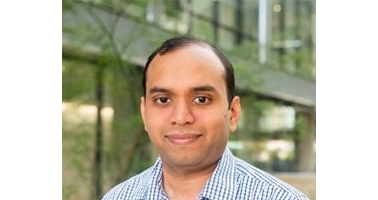Past Event: Oden Institute Seminar
Krishna Kumar,
12 – 1PM
Wednesday Apr 10, 2024
POB 4.304
In the rapidly evolving landscape of technology and education, equipping young minds with coding and artificial intelligence (AI) literacy cannot be overstated. In 2015, I started teaching coding to kids under the auspices of Code Club, now a significant part of the Raspberry Pi Foundation, at the Cambridge City Council Library in the UK. Our volunteer-run program has been at the forefront of this transformative educational movement by teaching kids aged 7 - 13 programming through Scratch, Python, and hardware coding (BBC Microbits and Raspberry Pi). This talk outlines our journey in fostering an inclusive and technologically adept future generation, addressing the critical need for AI and coding literacy amidst the challenges posed by existing educational and socio-economic divides.
The digital chasm, particularly evident in settings like the Austin Independent School District (ISD), where coding is not part of the core curriculum, and the prohibitive cost of online coding courses, underscores the urgency of our mission. Our collaboration with the Austin Public Library to provide free coding and AI lessons to tweens aged 7-12 has marked a significant step towards democratizing access to essential technological education. In the last two years, nearly 150 children have engaged with Scratch and Python programming, learning through an interactive curriculum of games and puzzles. Last summer, we expanded to five additional branches to further bridge the gap, focusing on underserved and low-income communities to enhance diversity and representation in STEM fields by training Youth librarians.
In the next iteration, we are developing a new AI Code City, where kids can integrate AI/ML, including chatbots, image recognition, and control in building a physical city, including drawing roads, water pipeline networks, and renewable energy. The AI Code City introduces children to the fundamentals of machine learning in an engaging and accessible manner. These initiatives are about teaching technical skills and nurturing problem-solving capabilities, critical thinking, and creativity, essential competencies for the digital age.
In partnership with local libraries, we are scaling our impact by training librarians and targeting growth in disadvantaged neighborhoods. Through continuous improvement, feedback, and rigorous evaluation, our program is a testament to the power of community and innovation in reshaping the educational landscape. By making coding and AI literacy accessible to all, we are laying the groundwork for an inclusive, empowered generation poised to navigate and shape the future of technology and society.
Krishna Kumar is an assistant professor of the Fariborz Maseeh Department of Civil, Architectural, and Environmental Engineering and an affiliate member at the Oden Institute of Computational Sciences at UT Austin. Krishna received his PhD in Engineering at the University of Cambridge, UK, in multi-scale and multiphysics modeling. Krishna's work involves developing AI-accelerated numerical methods. His research is on physics-based machine learning techniques, such as graph networks and differentiable simulators, to solve inverse and design problems and application of AI-accelerated and DiffSims to develop autonomous construction robots on the Moon and Mars. He is the PI and Director of Chishiki AI, an NSF-funded AI in Civil Engineering Ecosystem.
